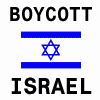assalamualaikum wbt,
hari ni aku akan ke Kyiv (ibu negara Ukraine). nak ke embassy, ambik passport aku. semalam aku call, si Igor (P.A Embassador) tu kata dah siap dan aku bole datang amik passport aku. so, train adalah pilihan utama aku. selain daripada murah, train juga aku kategorikan sebagai sebuah pengangkutan yang agak selesa. perjalan ke Kyiv biasanya mengambil masa selama 13-15jam. biasanya, aku akan ambil overnight train. dari Simferopol, aku biasa bertolak petang and akan sampai ke Kyiv pagi-pagi buta. aku akan ambil metro ke Embassy. Dari stesen zalizhnitsaha (railway), aku akan ke stesen Khreshatik turun kat Maidan yang bersejarah tu. Dari sini, aku akan buat pertukaran train ke stesen Levedskaya. erm, aku ingat nak shopping kt Chinese market esok. duit lagi. Bankrup ah camni. aku ada USD200 aje lagi kt tgn. nak sampai ujung bulan. bole tahan ke tidak, aku sendiri tak tau arr.
pict1: Ni la rupa train station Simferopol
pict2: lebih kurang gini arr rupenye train yang akan aku naiki untuk ke Kyiv
Doa bermusafir:
اَلله ُ أَكْبَرُ ، اَلله ُ أَكْبَرُ ، اَلله ُ أَكْبَرُ سُبْحَاْنَ الَّذِيْ سَخَّرَ لَنَاْ هٰذَا وَمَاْ كُنَّاْ لَهُ مُقْرِنِيْنَ وَإِنَّاْ إِلـٰى رَبِّنَاْ لَمُنْقَلِبُوْنَ اَللّهُمَّ إِنَّاْ نَسْأَلُكَ فِيْ سَفَرِنَاْ هٰذَا الْبِرَّ وَالتَّقْوَى وَمِنَ الْعَمَلِ مَاْ تَرْضٰى ، اَللّهُمَّ هَوِّنْ عَلَيْنَاْ سَفَرِنَاْ هَذَا وَاطْوِ عَنَّاْ بُعْدَهُ ، اَللّهُمَّ أَنْتَ الصَّاْحِبُ فِيْ السَّفَرِ وَالْخَلِيْفَةُ فِيْ اﻷَهْلِ ، اَللّهُمَّ إِنِّيْ أَعُوْذُ بِكَ مِنْ وَعْثَاْءِِ الْسَّفَرِ وَكَا ٰبَةِ الْمَنْظَرِ وَسُوْءِ الْمُنْقَلَبِ فِيْ الْمَاْلِ وَاﻷَهْل
Hypertension: Blood Pressure Basics
What is hypertension? What causes hypertension and what are the symptoms?
Blood pressure is the force of blood pushing against blood vessel walls. The heart pumps blood into the arteries (blood vessels), which carry the blood throughout the body. High blood pressure, also called hypertension, is dangerous because it makes the heart work harder to pump blood to the body and it contributes to hardening of the arteries or atherosclerosis and the development of heart failure.
What Is "Normal" Blood Pressure?
There are several categories of blood pressure, including:
* Normal: Less than 120/80
* Prehypertension: 120-139/80-89
* Stage 1 hypertension: 140-159/90-99
* Stage 2 hypertension: 160 and above/100 and above
People whose blood pressure is above the normal range should consult their doctor about methods for lowering it.
What Causes Hypertension?
The exact causes of hypertension are not known. Several factors and conditions may play a role in its development, including:
* Smoking
* Being overweight
* Lack of physical activity
* Too much salt in the diet
* Too much alcohol consumption (no more than 1 to 2 drinks per day)
* Stress
* Older age
* Genetics
* Family history of high blood pressure
* Chronic kidney disease
* Adrenal and thyroid disorders
What Are the Symptoms of Hypertension?
There are usually no symptoms or signs of hypertension. In fact, nearly one-third of those who have it don't know it. The only way to know if you have hypertension definitely is to have your blood pressure checked.
If your blood pressure is extremely high, there may be certain symptoms to look out for, including:
* Severe headache
* Fatigue or confusion
* Vision problems
* Chest pain
* Difficulty breathing
* Irregular heartbeat
* Blood in the urine
Who Is More Likely to Develop Hypertension?
* People with family members who have high blood pressure.
* People who smoke.
* African-Americans.
* Women who are pregnant.
* Women who take birth control pills.
* People over the age of 35.
* People who are overweight or obese.
* People who are not active.
* People who drink alcohol excessively.
* People who eat too many fatty foods or foods with too much salt.
How Is Hypertension Diagnosed?
Your health care provider can tell if you have hypertension by checking your blood pressure with a special meter called a sphygmomanometer, which consists of a stethoscope, arm cuff, dial, pump, and valve. You can also measure your own blood pressure at home. You should have your blood pressure checked at least once a year to make sure you don't have hypertension.
What Health Problems Are Associated With Hypertension?
Hypertension is a serious condition that can damage the heart and blood vessels, and can eventually lead to several other conditions, including:
* Stroke
* Heart failure
* Heart attack
* Kidney failure
* Vision problems
How Is Hypertension Treated?
Hypertension is typically treated by making changes in your lifestyle, and with drug therapy. Lifestyle changes include losing weight, stopping smoking, eating a healthy diet (such as the DASH diet, which includes lowering sodium but including daily servings of fruits, vegetables, and whole grain foods), and getting enough exercise, especially aerobic exercise.
Several types of drugs are available to treat hypertension, including ACE inhibitors, angiotensin receptor blockers (ARBs), diuretics, beta-blockers, and calcium channel blockers.
for article of hypertension in Bahasa melayu, please visit this link
http://bilikini.blogspot.com/2008/01/darah-tinggi.html
credit to DBI
Tuesday, February 05, 2008
Aku bermusafir
Posted by
Zulfahimi bin Husain
at
1:03 am
![]()
![]()
Labels: Heart attack, Heart failure, Hypertension, Kidney failure, Stroke, Vision problems
Subscribe to:
Post Comments (Atom)







No comments:
Post a Comment